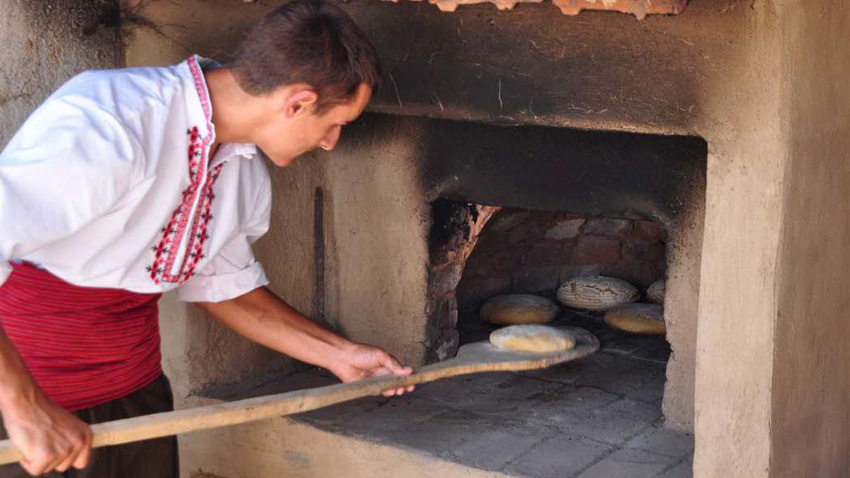Five years ago, two Dutch environmental organizations - Ark and Avalon focused on the Eastern Rhodopes in Bulgaria. This is the mountain of the legendary Thracian priest Orpheus and is characterized with unique biodiversity and preserved nature. The project of the NGOs was entitled New Thracian Gold and its strength lies in the combination of 3 elements - habitat restoration, eco-tourism and organic farming into a single integrated approach. The project ends this year with significant achievements in the creation of models for sustainable development of the Eastern Rhodopes. ARK team leader Frank Zanderink told us more:
When in 2009 the New Thracian Gold project started in the Eastern Rhodopes only seven certified organic producers existed. Today there is a network of 40 certified farms. A number of guest houses were built too. The first detailed tourist map of the Eastern Rhodopes was published too, together with a guide in Bulgarian and English, as well as a map for the TransRhodope eco trail. The successful reintroduction of large herbivores previously extinct in the region plays a major role in reviving essential natural processes. This has also led to a rise in the number of tourists in the region.
One of the local organic farmers - Petko Angelov practices the so-called biodynamic farming. It is based on ancient agricultural practices that rely on the lunar calendar, the influence of the stars and sun. Mr. Angelov grows an ancient variety of wheat dating back to Thracian times. It always sowed on the day of vernal equinox and reaped on the day of the autumnal equinox. We plough and sow barefeet, Mr. Angelov explains and adds:

"The energy contained in the earth needs to pass to the farmer and vice versa. Vital energies must be exchanged. For the ancient Thracian the center of everything was mother Earth. Their agriculture was gentle to the earth and they kept to principles recommended by a number of institutes today. We do not practice deep plowing. In bio-dynamic farming a strict schedule of the processes is kept. Different types of agricultural work is done according to astronomical and other natural factors. Over the past few years we have been trying to restore Thracian agricultural practices dating back to 8 thousand years ago. Last year we made a test sowing a field according to modern methods and one according to the Thracian practices. We were pleasantly surprised to see that application of the bio-dynamic principles led to much better results. This way productivity is increased without using any herbicides and fertilizers. We use special minerals that are very common in our country such as zeolites. When put in the soil they enrich it slowly for a period of up to 10 years.”

People can get acquainted with some of these curious agricultural practices borrowed from the ancient Thracians during the festival of bread that will take place in the village of Rabovo in July. The event has been attracting more and more attention over the years and the festival is visited by a number of Bulgarian, Dutch and German tourists.
English version: Alexander Markov
The eagerly-awaited Tulip Parade at the University Botanical Garden in Balchik is at its peak. This year’s parade includes more than 45,000 bulbs, and 27 varieties that are new to the Garden, among them Tulipa "Carnaval de Nice, which combines..
In 2024, Bulgaria has 15,737 foreign students, making up 8.6% of all current students in the country. By comparison, this share has doubled over the past decade. This data comes from NACID , updated annually in the Bulgarian University Ranking..
Divers will clean the seabed around the port of Sozopol today, reports BTA. "Since 2018, we have been doing the cleaning, completely voluntarily, with our own resources, with the idea of doing something useful for everyone," said Nayden Nedev, diving..
Looking and feeling your best doesn’t have to come at a high price — especially in Bulgaria. The country has become a rising star in beauty tourism,..
Residents and visitors to Sofia will have the opportunity to learn more about Bulgarian scientists working in Antarctica and their important role in the..
The prices of Easter goods are rising The Easter meal in the Balkan countries will be more expensive this year, BTA reports...

+359 2 9336 661
